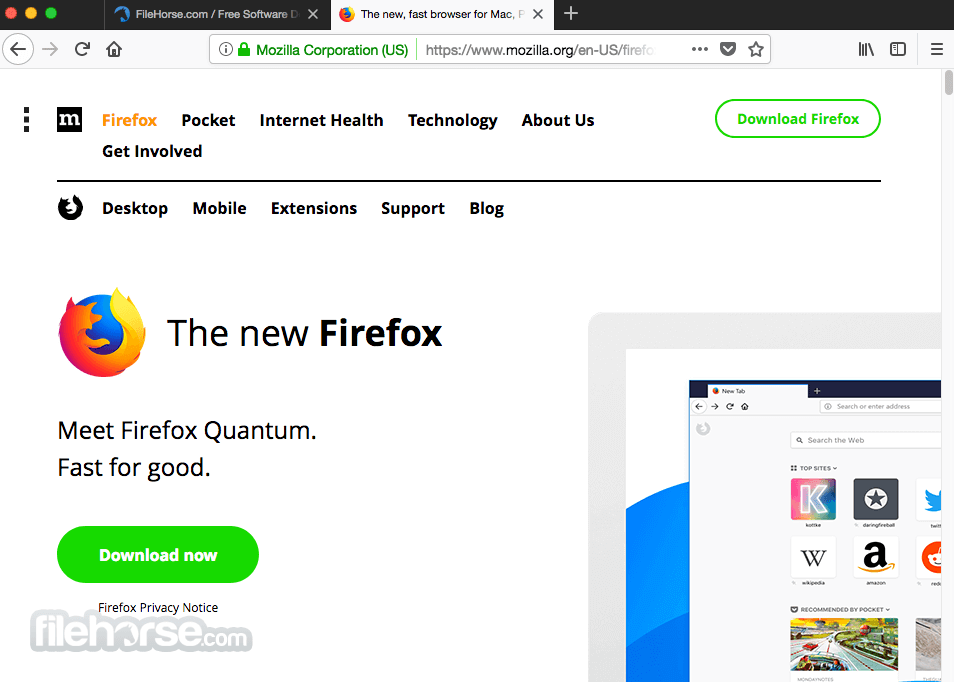

You can't really go online nowadays and not think about security and privacy. Smart search suggestions, bookmarks, history and open tab in results, a built-in screenshot tool, the ability to sync across devices, a reader mode, picture-in-in picture mode, built-in ad blocker, and an option for blocking the autoplay of videos and audio are all part of the Firefox experience.

The latest version of Firefox has a lot of tools meant to boost productivity too. Tab management, multi-tasking options, hardware acceleration, and a massive extension database are just some of the strong points of the latest iterations of Mozilla's browser. When first launching Firefox, you're bound to discover a browser that's relatively modern-looking, very geared towards the user experience (thanks to a plethora of GUI customization options), secure, fast (thanks to the latest Quantum engine), and very resource-friendly.įirefox has always been great at improving the user experience. What's more, Firefox has some undeniable advantages over Chrome and (for the sake of being objective) vice-versa. After all, stats only tell a part of the story. However, you can't really talk about Firefox without comparing it to Chrome. In a vacuum, Firefox would be the perfect fit for almost all the world, as it always was, and it still is an excellent browser. Launched in 2002, Firefox is the beloved browser that comes pre-bundled in almost all important distributions. In a world dominated by Google Chrome, there's one browser that has always been relevant.

In today's context, more and more of everything is moving online, making browsers even more valuable than, say, a decade ago. Things have come a very long way since 1990 when Tim Berners-Lee invented the first web browser.


 0 kommentar(er)
0 kommentar(er)
